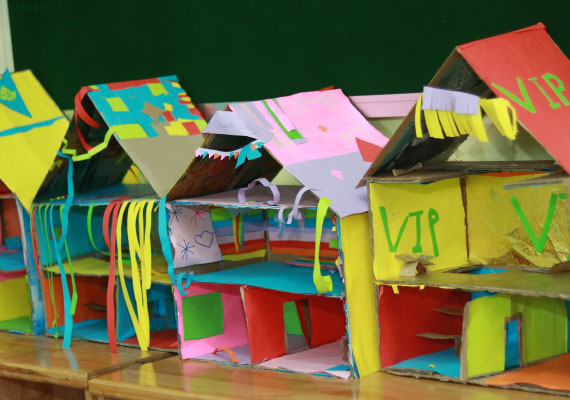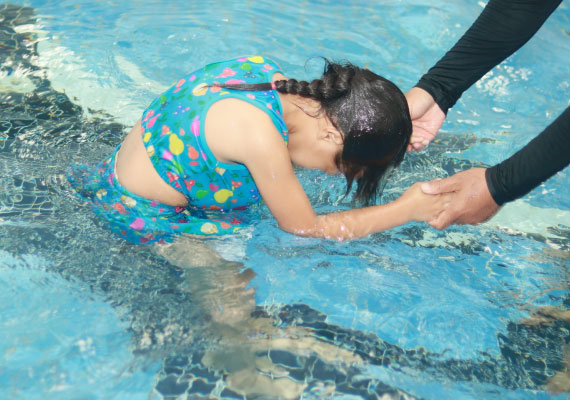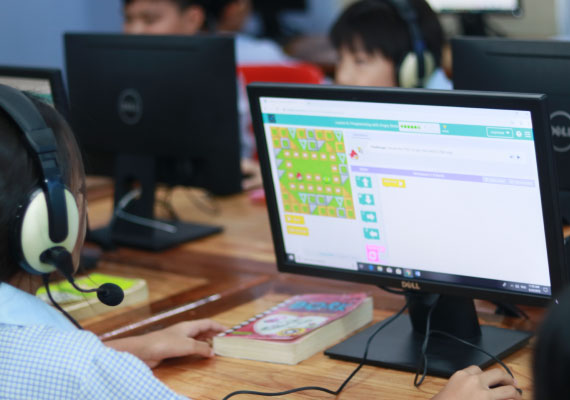Our Early Years program includes Nursery, Pre-Kindergarten, and Kindergarten. At APIS, we make sure students going through this program learn more than just English. Students at these levels develop fine and gross motor skills, gain independence, and develop their social skills through play.
Discovery Time
All students in our Early Years programs begin each day with Discovery Time. This time is set for learning through play and developing social skills with both classmates and teachers. Students practice language through song and conversation, solve problems as they arise, and are given time and space to follow their interests.
Fundamentals
In our fundamentals classes, students learn the basics of English, math and science. This includes practicing handwriting, studying the alphabet and phonetic sounds, and learning how to count. Each level uses textbooks and activity books to further support the students.
Khmer Language and Culture
Available only for full-day students, our Kindergarten Khmer classes introduce students to Khmer language and culture basics.
Project
The final element of our Early Years curriculum is our project-based classes centered on the International Early Years Curriculum (IEYC). Teachers select 4 or 5 different units for students to study throughout the year. Students may spend a term learning “All About Me!” or delving deep into the world of superheroes or dinosaurs.
Learning beyond the classroom
Students in our Early Years program also partake in specials activities with specialized teachers. All Early Years students practice healthy living through exercise. Students go swimming and have Physical Education class at least once a week. All Early Years students also take art classes where they learn the basics of cutting, gluing, and coloring. Starting in Pre-Kindergarten, students spend one session a week in our ICT lab learning the basics of how to use computers.
What is IEYC?
The International Early Years Curriculum (IEYC) is a new research-based curriculum recognising global best practice in early childhood education and the developmental needs of 2- to 5-year olds. It supports key areas of learning through holistic enquiry and play-based approaches that cover all curriculum areas including personal, social and emotional development.
I. Learning Strands
The IEYC is built around four Learning Strands that underpin all learning and development:
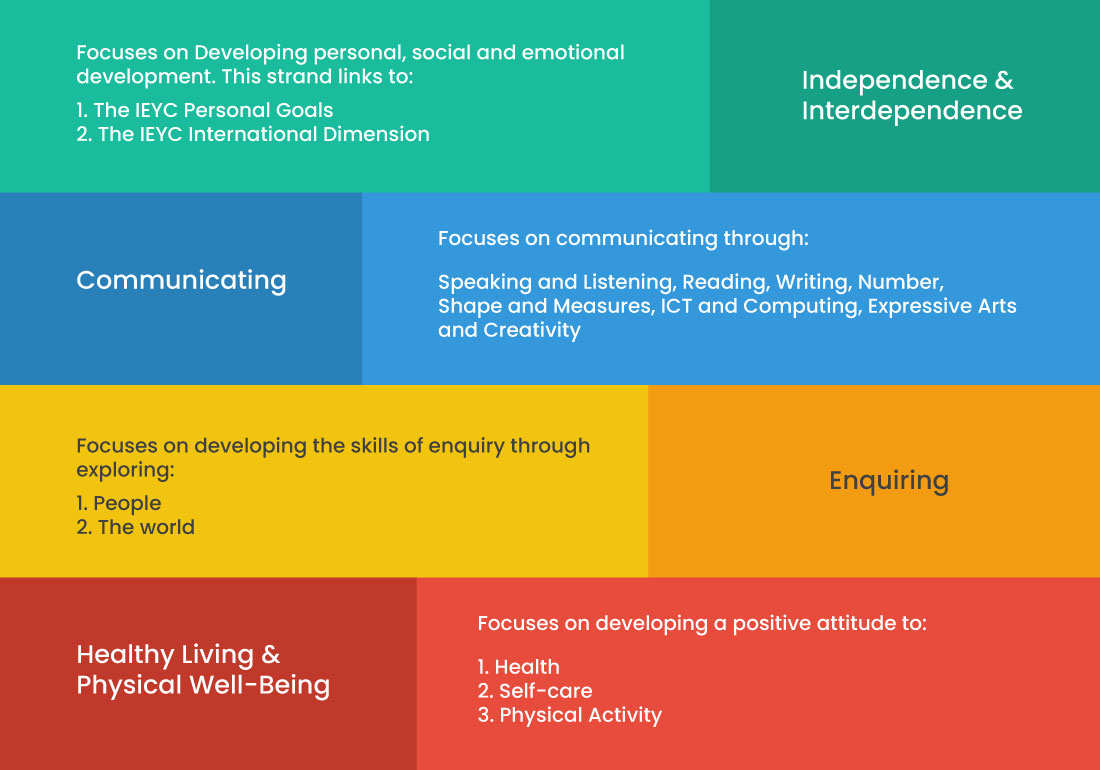
II. Learning Process
The IEYC Units of Learning focus on a process of learning rather than relying solely on learning outcomes to drive a child's development. This process of learning captures children's natural curiosity as a starting point and balances child-initiated and teacher-scaffolded provision within an enabling environment.
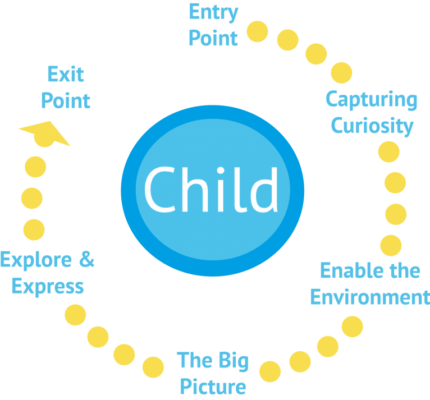
III. IEYC Learning Principles
There are eight Learning Principles that underpin all practice in the IEYC, developed from our research report findings.
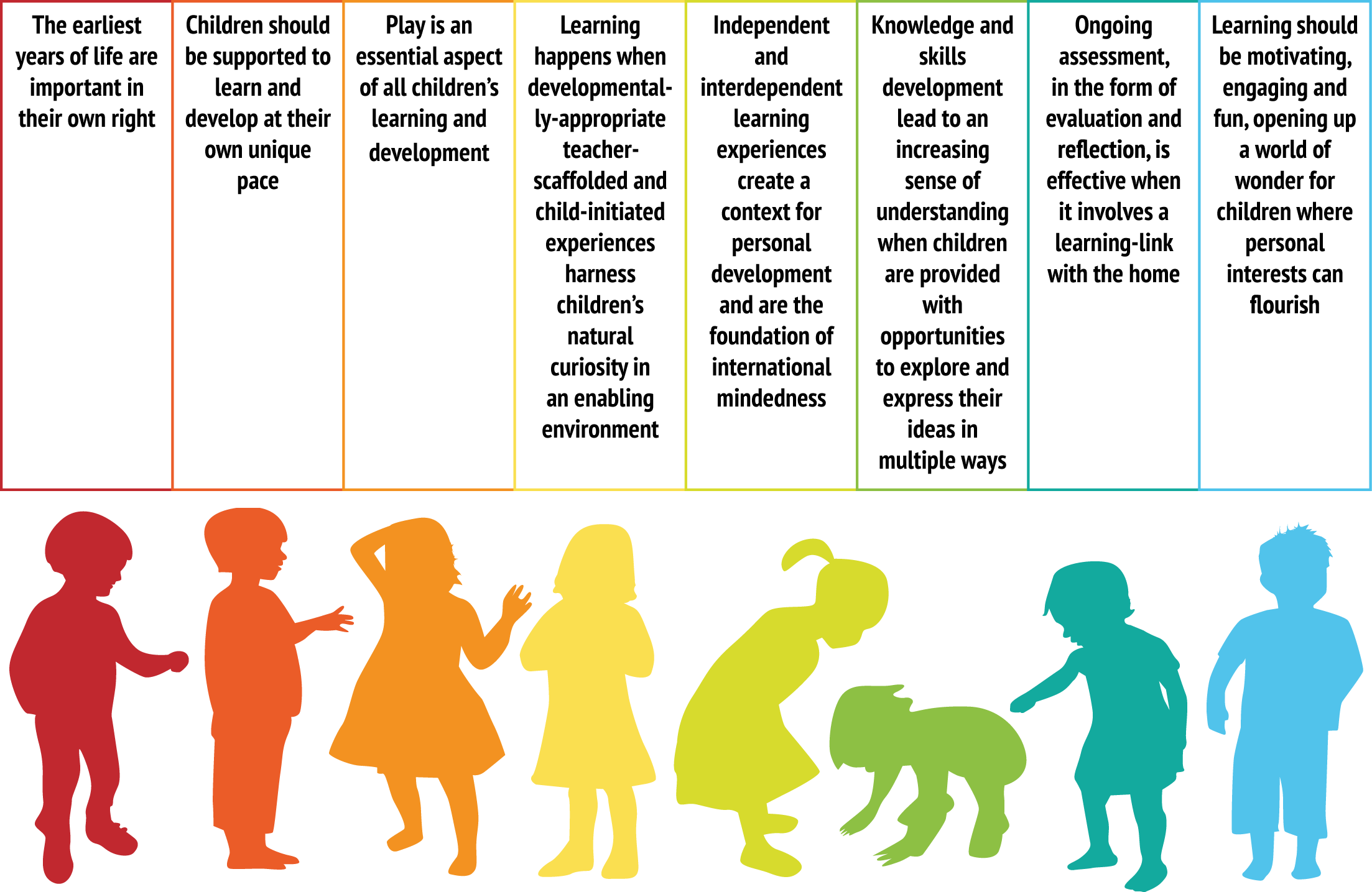
V. Personal Goal
The IEYC develops the goals as we believe children will find them essential for life and learning in the 21st Century. There are eight IEYC Personal Learning Goals.
Examples of how some settings define each goal:
- Enquiry: to find out more and show an interest
- Adaptability: to try new things
- Resilience: to keep on going even then things get tricky
- Morality: to do the right thing and make good choices
- Communication: to think about what we want to say and how to say it best
- Thoughtfulness: to be a good listener, to thinker about others, to think about our learning
- Cooperation: to be able to learn and play together
- Respect: to be kind to other
